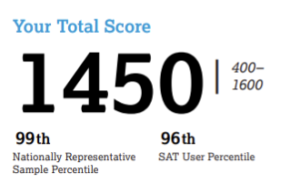x min read

Use This To Master Any Major You Want For Free
Introduction
I recently discovered a new way to actually learn an interest of yours, completely for free and without any kind of sign-up. It’s a popular resource that’s well-known by many, however, I was only just recently told about it; and so, for those who were just like me and didn’t know either, I’ll tell you about it.
This idea stemmed from the desire of mine to learn new subjects and concepts for the major I wanted (and still want) to pursue. Most people assume that college is the only way to be able to learn anything; and that, in order to land the job you want, you need a degree. However, it’s more than just a degree. A degree tells companies and the people that employ employees whether or not you’re a suitable candidate. Are you able to carry yourself out? Can you ensure that you handle tasks responsibly? Will you be on time and efficient? Going to college gives companies the confirmation and security they need to hire new employees.
So hopefully, it’ll blow your mind as much as it did for me.
MIT OpenCourseWare
The source I’m specifically talking about is called “MIT OpenCourseWare”, which is a collection of virtually all -I kid you not- the courses offered at MIT. Like literally everything.
If there’s a major that interests you in the STEM space (and maybe other spaces too, I saw a “heavy metal” course, so anything is possible), then this is probably one of the best places to do deeper research and really discover more about what your major is like. It’ll give you a somewhat-fair idea of what college work is like, and especially what work in your major might be like too. You’ll be able to see the problems you’re expected to solve, the logic you need to go through per every problem, and so much more.
Additionally, not for all but for some, you can take a look at the direct lecture notes of these courses. On top of that, there’s also labs, assignments, and practice tests and quizzes for you to look at too. I looked at a problem just yesterday for some random math field, and wow it didn’t even look like math. There’s still so much to learn, and these courses will give you an idea of this.
Side Note
This is by no means the best way to prepare for the classes you’ll take for your major in college. Trust me, there’s probably many other digital and physical courses you can take that will teach you 10 or even 100x more. However, for being a free resource, and knowing the respectable name of MIT, there isn’t much better. And if there is, is it as easily accessible as OpenCourseWare? (there might be, I’m just asking a question)
How To Use This Resource (to its potential)
It’s at this point that I assume that you already have your major decided, or potentially decided. At that point, this resource works perfectly.
If you use this resource immediately as it is, you probably won’t get much out of it. Colleges cover extremely advanced material, and to get to the primary course that you want to take, it usually requires this course, and this other course. There’s just so many prerequisites and requirements that it just makes the work you already knew you had to do even larger. The pile just stacks and only continues to stack.
For that reason, I suggest you do some research and learn beforehand. By this I mean: actually research your field. What exactly do you need to know? Sure, you might need to know some calculus and statistics for your field, but what kind of calculus? Is it advanced, is it beginner? (not to say it’s easy)
And if you’ve already done that (which is great), then I recommend you start learning whatever you can that’s easily accessible. MIt OpenCourseWare offers some intro courses to the main course you might want to take, but those too can be extremely advanced and absolutely not easy. So, you might -no joke- need to gain some extra introductory insight for an intro course. Sometimes, that’s just what needs to be done. It might suck, but it’ll suck even more not knowing anything right as you walk into your first class. After all, you’re paying really good money for this education. So, make the most of it.
Where to get further insight
I recommend using digital course resources like Coursera or Udemy. They offer relatively cheap learning resources while offering insane value. $25 can get you access to some wonderful information that you simply can’t find on YouTube or have to spend months making sense of to find on Google. Yes, you heard that right. You CAN learn through Google; however, it’s awfully hard and there’s simply too much information to go through. To just find the information you need for your specific field, you’ll need to go through articles, recent news, records, papers, and too much more. Just choose the smarter decision. $50 is worth so much less than all of that time.
Additionally, for those willing to take this to the next level, you can try and find major-related physical workshops and courses near you. Internships are also a really good way to get experience and learn more without having to sit at your desk and just read and try to concentrate all day. They are by far the hardest alternatives, but still always an option for those of you waiting to take this seriously.
Where to access
You can just search up “MITOpenCourseWare” and just click on the first link that pops up. It’ll probably pop up some information piece from the wiki on it. That’s how you know it’s real. Otherwise, you can find the same site here. I also linked it in the heading of the first section (excluding the introduction).
Conclusion
For those of you who aren’t fortunate enough to go to college (which is perfectly fine, it just means that you have to be incredibly disciplined; far more than most people can handle), please never forget to take advantage of resources like these. They will change your life and make learning so much easier.



